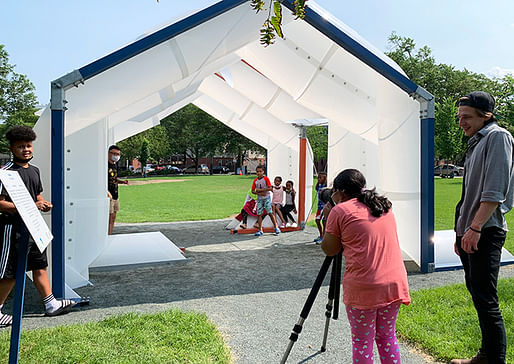

A trio of researchers from the Syracuse University School of Architecture and the SUNY College of Environmental Science and Forestry (SUNY-ESF) have been awarded a new $100,000 competitive grant for their examination of root causes laden in the built environment that are underpinning the growing racial wealth gap in the United States.
Syracuse’s Associate Dean for Research, Eliana Abu-Hamdi, Associate Professor Iman Fayyad, and SUNY-ESF landscape architecture assistant professor Daniel Cronan were recently awarded the grant for their project “Closing the Racial Wealth Gap through Environmental Justice and Participatory Design.”
The funding was made possible through the Lender Center for Social Justice. Researchers say it will help them achieve their project’s aim of identifying a list of positive changes that can be enacted in the most heavily-impacted communities. The research is being conducted in three phases and will result in BIM-supported participatory planning that demonstrates what the project's principal investigator Abu-Hamdi says is the “value of design in relation to ongoing economic, infrastructural, social and spatial challenges.”
An optimistic Fayyad stated: “There is a lot of opportunity to push our own disciplines in service of climate justice, sustainable building practices, and community involvement. Through our combined efforts with research, practice and teaching, we can consider how to make public spaces healthier, more accessible and equitable, and importantly, explore how design can empower communities by providing aesthetic value as well as functional, efficient and necessary infrastructure to improve the livelihoods of marginalized populations.”
The research is also meant to build content for a new joint studio course between SU and the ESF wherein students will engage community members in the city of Syracuse with design proposals for public infrastructure.
The team shares: “Through the BIM application and design proposals (both in the form of a built prototype and further speculative variations), the team’s co-production framework of analysis and design will allow for transferability to future research applied to communities with similar concerns and further research beyond the applied case study for Syracuse.”
Cronan added finally: “We see this endeavor as a great challenge and hope to expand the scope of this year’s research focus to provide transferrable skills, frameworks and expanded resources to build awareness and resilience within these communities.”
The project's deliverables will be presented at the annual Lender Center for Social Justice Symposiums in March 2024 and March 2025. More information about the Lender Center for Social Justice’s ongoing programmatic initiative on wealth inequality can be found here.
No Comments
Block this user
Are you sure you want to block this user and hide all related comments throughout the site?
Archinect
This is your first comment on Archinect. Your comment will be visible once approved.